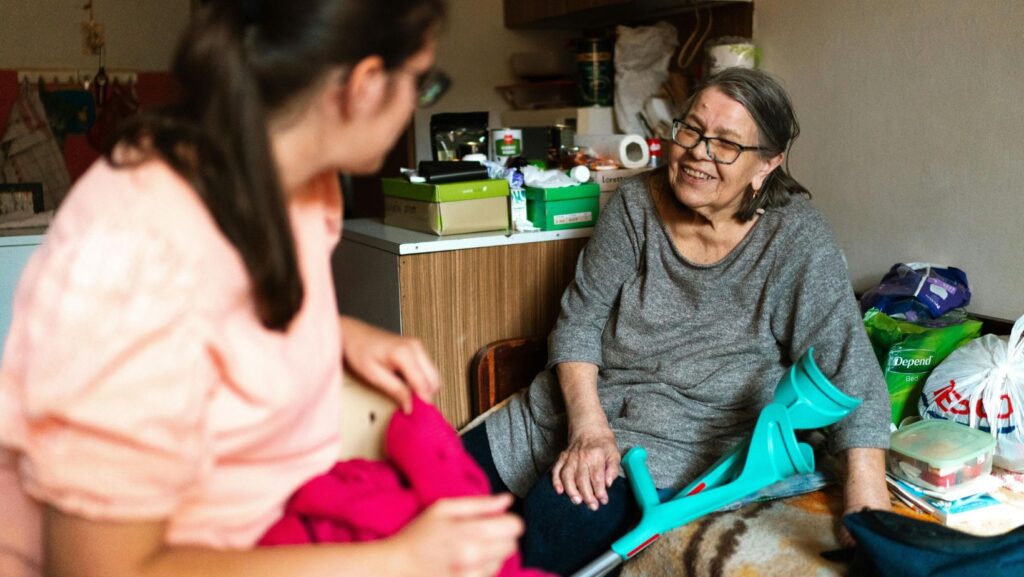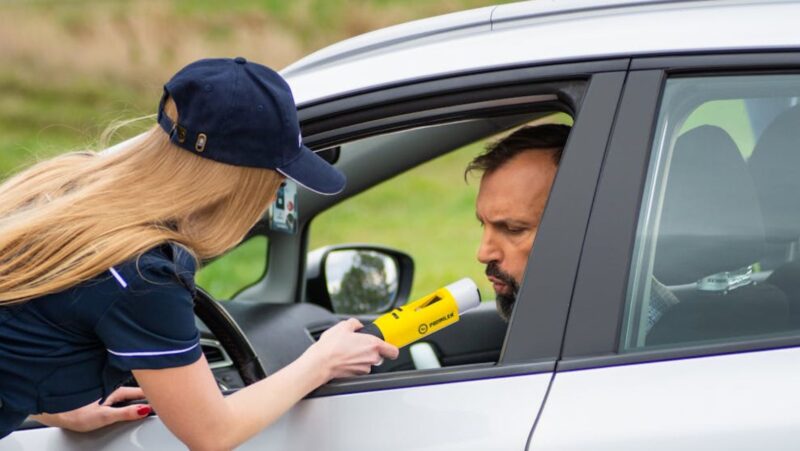
Caring for someone with dementia demands patience, compassion, and the right tools to navigate daily challenges. Each stage of dementia changes the way a person communicates, remembers, and functions, making consistent support essential.
Modern caregiving has evolved far beyond traditional methods, offering innovative solutions that ease the strain on both caregivers and loved ones. These tools bring structure, safety, and peace of mind into what can often feel like a chaotic routine.
For dementia caregivers, the right combination of digital aids, safety devices, and memory support systems transforms daily care from stressful to manageable. The following five essential tools strengthen safety, improve coordination, and protect the dignity of those living with dementia.
Why Do Dementia Patients Need Tools For Extra Care?
- Memory declines: As dementia progresses, remembering names, places, and daily routines becomes harder. Tools that provide reminders and organization help patients stay grounded in their day.
- Safety declines: Many dementia patients wander or forget where they are, which can lead to dangerous situations. GPS trackers for dementia patients help caregivers locate them quickly and ensure their safety.
- Speech weakens: Communication becomes difficult when words don’t come easily. Devices with picture-based or voice-assisted features allow patients to express their needs clearly.
- Routine stabilizes: Consistent reminders and structured schedules help reduce confusion and bring a sense of calm to daily life.
- Stress decreases: For caregivers, smart devices lessen the constant worry and allow them to manage responsibilities more easily.
- Bond strengthens: When safety and routine are supported by reliable tools, caregivers have more time to connect emotionally with their loved ones.
- Independence lasts: The right tools empower dementia patients to stay involved in their own routines, preserving confidence and dignity as the condition progresses.
Things to Consider Before Buying These Tools
Compatibility with Daily Routine
Choose tools that blend naturally into the patient’s day-to-day life. Simple and familiar tools help reduce confusion and support consistent use.

Ease of Use
Pick devices with clear buttons, large displays, and minimal steps. Straightforward operation ensures the patient and caregiver can use them confidently.
Accuracy and Reliability
Prioritize tools known for dependable performance. Real-time tracking, precise medication dispensing, and responsive alerts are essential for safety.
Battery Life and Power Options
Check the expected battery duration before purchase. Long battery life prevents interruptions and provides continuous protection.
Durability and Build Quality
Select products made with sturdy, water-resistant materials. A durable build guarantees lasting use and steady performance in daily conditions.
Connectivity and Coverage
Confirm that the device works effectively within your local network range. GPS trackers should function across all major U.S. cell networks for complete reliability.
Cost and Subscription Plans
Evaluate both upfront costs and recurring fees. A well-priced device with the right features delivers the best value over time.
Data Privacy and Security
Ensure the tool encrypts sensitive data and keeps personal information secure. Only authorized caregivers should have access to stored health or location data.
Customer Support and Warranty
Choose brands that provide responsive support and warranty coverage. Reliable service makes maintenance and issue resolution straightforward.
Caregiver Integration
Opt for systems that allow shared access among multiple caregivers. Collaborative use improves coordination and ensures consistent care management.
What Essential Tools Every Dementia Caregiver Should Use?
1. Family1st Senior GPS Tracker
Family1st Senior GPS Tracker provides real-time tracking, allowing caregivers to know the exact location of their loved ones, even if they wander into an unknown place. It operates reliably wherever U.S. cell coverage exists, ensuring consistent connection and peace of mind.
Its small and portable design allows it to be hidden discreetly in a shoe or pocket, making it ideal for dementia patients who need unobtrusive protection. The optional magnetic case keeps the tracker secure and waterproof, protecting it from damage during everyday use.
Known as the most budget-friendly choice in its category, Family1st includes geofencing technology that alerts caregivers the moment a patient leaves a safe zone. It combines precision, affordability, and discretion, creating a dependable layer of safety for dementia care.
2. Hero Smart Pill Dispenser
Hero Smart Pill Dispenser manages daily medication with precision and ease. It sorts and releases pills automatically based on set schedules, ensuring every dose is taken accurately and on time.
Caregivers receive real-time alerts through the mobile app when a dose is missed or dispensed. The app keeps a clear record of each activity, simplifying medication tracking and healthcare communication.
Its one-touch operation and clean design make it accessible for seniors with memory challenges. Hero supports consistency, reduces errors, and builds confidence in daily care routines.
3. FallCall Lite
FallCall Lite provides immediate protection for seniors vulnerable to falls. The wearable detects sudden impact and notifies caregivers or emergency contacts through automatic alerts.
It operates on Apple Watch and iPhone using advanced motion-sensing technology that distinguishes minor movements from serious incidents. Caregivers receive prompt notifications that improve response time during emergencies.
Its lightweight and comfortable form encourages daily wear. FallCall Lite supports independence while maintaining constant safety supervision.
4. Lingraphica GoTalk NOW
Lingraphica GoTalk NOW enhances communication for dementia patients experiencing language loss. It displays customized boards with words, images, and recorded voices that help patients express thoughts clearly.
Each board can include personal photos and familiar sounds, creating comfort and reducing communication frustration. It restores a sense of control by making expression simple and meaningful.
The interface is intuitive, allowing use without technical knowledge. GoTalk NOW maintains emotional connection and encourages active participation in daily life.
5. CareClinic Care Management App
CareClinic App organizes essential caregiving tasks in one digital space. It records medication schedules, tracks symptoms, and manages appointments with accuracy.
Shared access allows multiple family members or professionals to stay updated at the same time. This improves coordination and keeps care consistent across different routines.
Integrated tracking tools display progress through clear logs and reminders. CareClinic simplifies complex caregiving duties and supports a structured approach to dementia management.
Conclusion
Caring for someone with dementia requires patience, structure, and the right mix of supportive tools. Each of these devices helps create a safer and more manageable environment for both the caregiver and the patient.
Technology now allows caregivers to track safety, manage medication, and maintain communication with greater confidence. These tools reduce daily stress and bring consistency to a routine that often feels unpredictable.
The goal of every caregiver is to protect dignity while ensuring comfort and independence. Choosing reliable tools like GPS trackers, medication dispensers, and management apps makes that goal achievable and strengthens the bond between caregiver and loved one.












